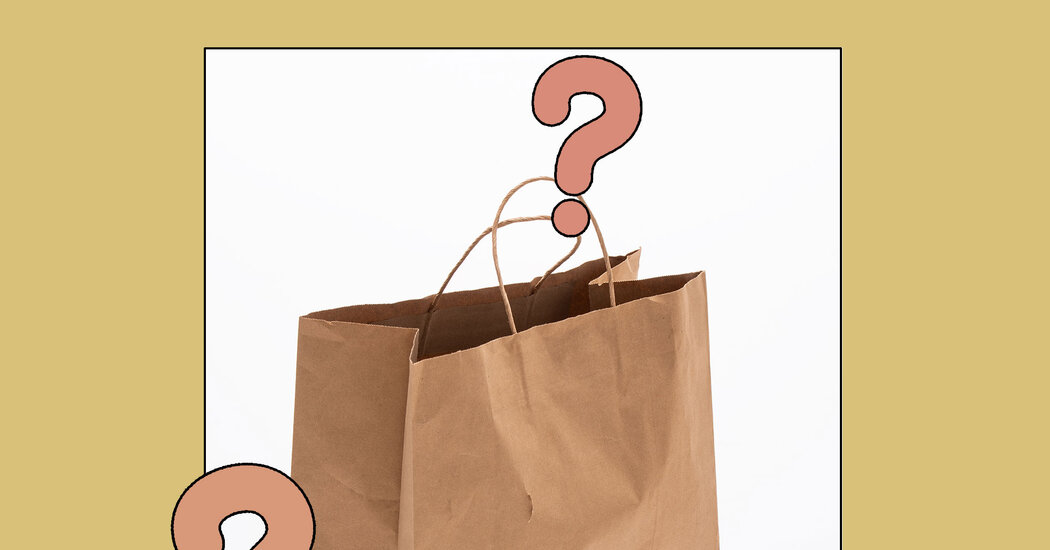With more cities, states and countries banning single-use plastic bags, paper has become a popular alternative at the grocery checkout. At first glance, this seems like an obvious win for the environment. Plastic bags, after all, are made from fossil fuels and a major source of pollution.
Paper bags, however, are not necessarily a better choice. They come with their own list of environmental caveats, as do reusable totes.
Here are some of the things to keep in mind for making an informed decision about bagging your groceries.
Plastic and paper
It’s hard to make apples-to-apples comparisons, pun intended, of different kinds of grocery bags. That’s because a bag’s environmental footprint depends on a plethora of factors: how it was made, what materials were used, how far it was transported and much more. But the few thorough studies that have been done on the subject do offer some helpful takeaways.
Paper bags tend to require more energy to produce than plastic ones. A 2011 study by Britain’s Environment Agency, for example, concluded that you’d have to reuse a paper bag three times to bring its global warming impact in line with that of a plastic bag used just once.
A 2018 study by Denmark’s Environmental Protection Agency similarly found that plastic bags made from low-density polyethylene, a versatile and widely used form of plastic, have the smallest environmental footprint of eight types of grocery bags, including paper ones.
But this still means that most paper and plastic bags wind up in a landfill or, to a lesser extent, in an incinerator. In landfills, paper bags produce methane and carbon dioxide, both potent greenhouse gases, as they break down. A plastic bag in a landfill produces neither, but, when plastic escapes into the environment, it can degrade into microplastics that sometimes last for centuries.
Samantha MacBride, an expert on urban waste at Baruch College of the City University of New York, stressed another consideration for consumers to keep in mind: The use of plastic bags perpetuates the fossil fuel industry. “That system needs to retract if we’re going to have a future,” she said.
The takeaway on totes
Reusable totes have surged in popularity as a way to reduce demand for single-use bags. But those good intentions have backfired in some ways as branded totes have become ubiquitous swag at conferences, company events and with certain retailers.
If a household accumulates more totes than it could ever use, that defeats the purpose of reducing overall consumption. It also means a bigger environmental footprint, since sturdier bags require more resources and materials to produce compared to single-use ones.
The material matters especially. The British study found that a cotton bag, for example, would have to be reused 131 times to reach the equivalent carbon footprint of just one single-use plastic bag. The Danish study put that figure at 149 times. This is because of the land, water and fertilizer required to grow cotton, the energy needed to process cotton into yarn, and the fact that most cotton bags are shipped from China or India.
Dr. MacBride recommended seeking out reusable bags that are made in your own country from more sustainable fibers like hemp or bamboo. Or, even better, from used fabric scraps.
The bottom line
Whatever your bag is made of, experts agree that reusing it as many times as possible is key to bringing down its environmental footprint.
This is where paper bags fall down, said Steven Cohen, an environmental policy expert at Columbia University, because they are the least durable option. City-dwellers who have to lug groceries from the store, for example, have to wonder, “‘Is this thing going to make it home,’” Dr. Cohen said.
If you’re diligent about reuse, then sturdy totes are probably the best bet, especially ones made from recycled material. Just don’t accumulate dozens of them.
Michael Overcash, a chemical engineer and chief executive officer of the Environmental Genome Initiative, a nonprofit group that evaluates the environmental footprints of products, cited a 2020 study in which he and colleagues compared the global warming potential of 20 products and found that reusable ones were consistently better than single-use ones. The same conclusion should apply to bags, he said.
“If you reuse a cotton bag a hundred times, it might get dirty-looking and you might want to wash it, but that means 100 paper or plastic bags didn’t have to be made,” Dr. Overcash said. “The math is simple.”


